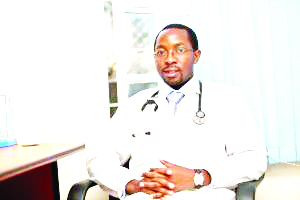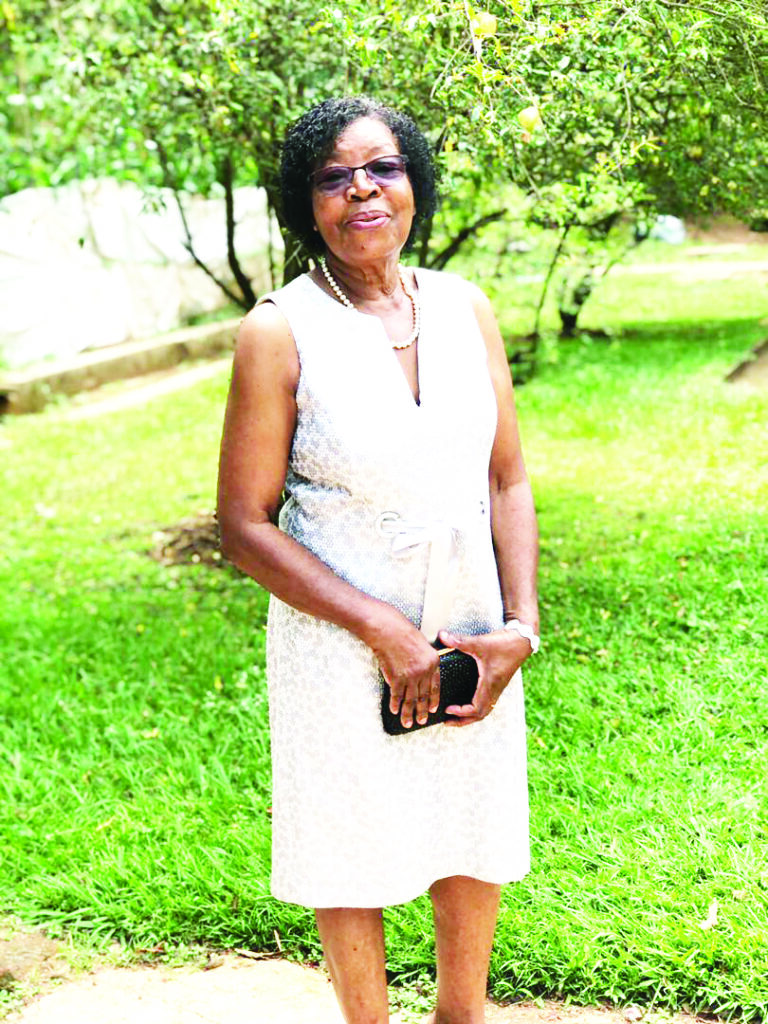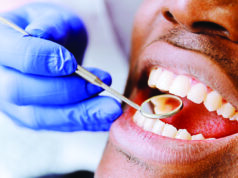Cancer caregivers play a crucial role in patients’ lives. Often, their love and kindness make the cancer journey more bearable. In most cases, the primary caregiver is a spouse, sibling, partner, parent, or adult child, to the patient. When the family is not around, close friends, co-workers, or neighbors may fill this role. Caregiving presents a chance to build or strengthen a relationship. This does not mean that caregiving is easy or stress-free. But in it you can find meaning, Pauline Akello writes.
Nakayinga’s experience
Betty Nakayinga took care of her sister for one and a half years, when she was suffering from breast cancer, till she recovered. Fortunately, her sister has been cancer-free for the last seven years, since being diagnosed in 2014.
When Nakayinga and her siblings observed a growing mass in their sister’s breast, they continuously urged her to go for an examination.
Their dreaded speculations were confirmed when she was diagnosed with breast cancer, and collectively the family swang into action.
They were not ready to lose their sister to the same disease that killed their father. Nakayinga, who was a university student then, would tend to her sister during day and attend class in the evening.
She says it was difficult, juggling school and looking after her sister. She was always worried even when she left her to go to class.
“It came to a point when I just wanted to stay home because she needed me. I would not concentrate well in class and I always worried about her whenever I was away,” she says.
Nakayinga was the point of contact for her sister in case anyone wanted to check on her. She had to always call her other relatives to give them updates on any improvements or doctor’s comments.
She helped with chores such as cooking, cleaning, and shopping. She also stayed with her sister at the hospital whenever need arose, went with her for appointments and collected medicines.
Whenever she needed rest, she would always call another relative to take over.
Learning more
Nakayinga says she tried to learn while interacting with the doctors. It helps to know what to expect and makes one more confident and in control.
She says she had to talk to the doctor in order to understand how best to help her sister. Though she was given most of the information, it was not too clear to digest, because she was equally stressed and in shock.
From her experience, Nakayinga says crucial questions to ask include how long till the patient feels more like themselves, what long-term health issues to expect as a result of cancer and treatment, chances of cancer recurring, symptoms to report, patient’s diet, and more.
Dr Nixon Niyonzima, the Head of Research and Training Directorate at Uganda Cancer Institute (UCI), says they educate caregivers and the public in general to create awareness, especially Novemeber.
He says they have campaigns like No-Shave November, which decrees that for the next 30 days, donate the money usually spent on shaving, hair maintenance and grooming.
The goal is to grow awareness by letting hair grow out, which many cancer patients lose.
Take care of yourself
Even though caregiving may not feel new to a person, many learn more through their loved one’s experience.
Many caregivers put their own needs and feelings aside to focus on the patient.
If self-care is neglected, caregiver stress kicks in and can have both physical and psychological effects. Rebecca Mayengo, a practicing psychologist, recommends asking for help from friends or family.
“It is important to take an honest look at what one can and cannot do. What things do you need or want to do yourself,” she says.

She also points out the importance of taking enough rest or asking for help when needed, as a caregiver. Mayengo says caregivers need support. Feelings of confusion and stress are common and it is okay to seek help.
She offers free tele-psychotherapy support and often receives requests for a listening ear, encouragement, clarity on a concept caregivers may not have understood, among others.
“Our therapy with caregivers and patients is extensive. We try to help them gain new insights into their experiences, generate individual ways to cope and comfort them to know they are not alone,” she says.
She adds that her and her colleagues carry group work, acceptance and commitment and cognitive behavioral therapy.
Therapy enables clients look at their circumstances, and re-evaluate them differently. She says this helps clients bypass some of the associated distress, and experience some comfort and relief.
She suggests that the simple ways to take care as a caregiver, is not to neglect one’s personal life, by making time for oneself.
She says: “Take at least 15-30 minutes each day to do something for yourself; take a nap, exercise, watch television or whatever you find relaxing. It is okay to cut back on personal activities, but do not cut them out entirely.”
Maintain routine
It is important to keep a routine. If one is unable to maintain a sense of predictableness, studies show that it can increase stress.
One may have to do things at different times in the day or for less time than usual, but try to do them.
You might find that caregiving enriches one’s life. Caregiving is said to trigger a deep sense of satisfaction, confidence, and accomplishment.
You may also learn about inner strengths and abilities that you did not even know you had, and find a greater sense of purpose for your own life.
Nakayinga says her experience fueled strength and endurance in her that she did not know she bore. She says she did not know she could be there for someone for more than a year, without giving up.
Caregiving can also be overwhelming, frustrating and painful. Caregivers may discover private feelings of sadness and distress, and pessimism over their loved one’s illness.
As the process of caregiving goes, the ways of coping may change, but it is always good to understand one’s thoughts, feelings and not bottle up everything.
Dr Niyonzima recommends caring for one’s body and giving it what it needs, both for the patient and for the caregiver.
“Paying attention to one’s own health, even when busy, can sustain your strength to help others. Therefore, it is important to watch for signs of depression or anxiety, constant worry, anger or irritation. If stress lasts more than two weeks, talk to the doctor,” he says.

Nakayinga says she tried to get enough rest, tried to remain social, took walks to clear her head and always relied on other relatives for help, although she experienced fatigue, sleep problems, changes in temperament and appetite.
Counseling opportunity
Even if providing mental health treatment to cancer patients and caregivers is not a specialty for counselors, Mayengo says they have become educated about it because it is likely that cancer can affect anyone.
She says counselors should take steps toward educating themselves about different cancers and treatments.
She adds that a counselor cannot always solve your problems, but can provide a helpful, outside view point because they are trained to help you deal with difficult situations.
“Sometimes people just need to be heard, not fixed. A counselor can also help speak with family and friends about changes, depending on the needs,” she says.

She emphasises that caregivers go through rampant suffering and pain. Their experience is also often dependent on the relationship with the patient. Consider their experience from life before and after the diagnosis, the time of treatment and side effects.
Certainly, support for caregivers is still evolving, with many becoming aware of their service, but more can still be done.
In her own words, Nakayinga hopes the UCI can come up with special programmes for caregivers.
She received counseling help from her family members and doctors whenever she took her sister for review. Other than that, she had to try by her own means to keep strong.
Other cancers
Apart from being a month of honouring caregivers, November is the awareness month for other cancers, specifically pancreatic, lung, stomach and carcinoid cancers.
Pancreatic cancer affects the pancreas, which aids digestion and metabolism of sugars. Here, tumors arise from the cells lining the pancreatic duct, which spread rapidly.
Lung cancer is known to occur when cells divide uncontrollably, causing tumors to develop. These can reduce a person’s ability to breathe and spread to other parts of the body.
Stomach cancer results from risk factors like smoking and eating highly processed or salty foods, and it affects the stomach.
With this, no symptoms can easily be seen in its early stages. Finally, carcinoid cancers, which affect lungs or digestive system.
Treatment for these cancers may include surgery, radiation and chemotherapy. The 2020 Global Cancer Observatory report found that there were 34,008 new cancer cases and 22,992 deaths, with 62,548 prevalent cases in Uganda.
The International Agency for Research on Cancer estimates that globally, one in five people develops cancer. Despite dire statistics, many people lack knowledge about cancer but early detection is critical to cancer survival.
+++++++++++++++++++++++++++++++++++++++++
Subscribe to our website and be the first to receive great Christian news, health information, pastoral guidance, environment, farming and many others. Also, Like and follow us on Facebook at Good News UG.





















